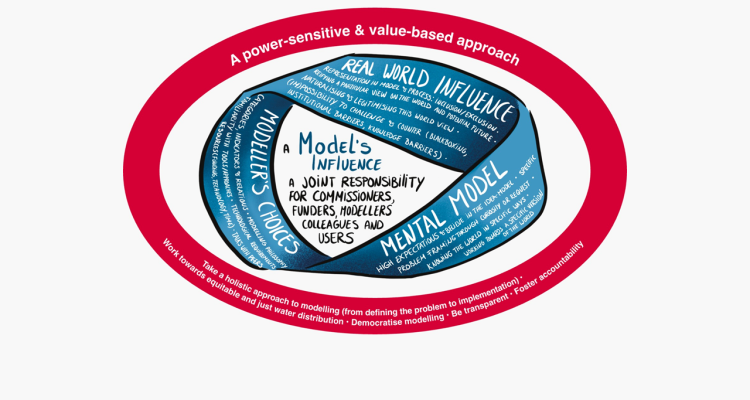
PhD defence
Of models and man: Unravelling the influence of water models and exploring how to engage
Summary
Undoubtedly, water models have the potential to influence the way we think about and engage with water. This influence happens through a combination of factors, including: a strong belief in what models can deliver, categorisations that represent people and nature in specific ways and invisibilise others, knowledge hierarchies that exclude certain (lived) experiences, and blackboxing a model through expertise, technology, or legal or institutional processes. Once a model is on the table, those affected often have to speak the language of the model to understand or counter decisions. This requires specific expertise, resources and access.
Water models can be used for good, but it requires work from modellers, financiers, commissioners and users. In my PhD, I propose a power-sensitive and value-based modelling approach:
• take a holistic approach to modelling beyond programming and coding;
• work towards just and equitable water distributions;
• be transparent about the expectations and choices made;
• foster accountability;
• democratise modelling by including multiple knowledge systems and incorporating marginalised people and nature.